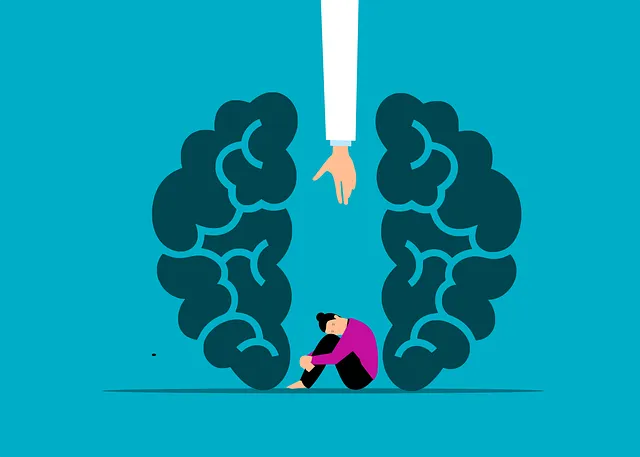Kaiser Permanente's Mental Health Access Center in Parker introduces a holistic, community-focused approach to mental healthcare, breaking down barriers and promoting accessibility for all. Inspired by their own journey with anxiety and depression, Parker has become an advocate, emphasizing the importance of tailored programs, cultural sensitivity, and stigma reduction initiatives. This multi-faceted strategy ensures individuals like them can receive proactive mental wellness support and empower others to take control of their well-being through accessible resources and education.
Mental health advocacy initiatives are crucial in shaping accessible and supportive communities. This article explores innovative approaches through the lens of Kaiser Permanente’s Mental Health Access Centers, offering a model for comprehensive care. We delve into the powerful story of Parker, whose personal experience ignites advocacy efforts. Additionally, discover effective strategies to foster mental well-being and drive systemic change, highlighting the impact of dedicated initiatives like Kaiser Permanente’s program, with a focus on community engagement and individual success stories, including that of Parker.
- Understanding Kaiser Permanente's Mental Health Access Centers: A Model for Care
- Parker's Story: Personal Experience Driving Advocacy
- Strategies for Effective Mental Health Advocacy Initiatives
Understanding Kaiser Permanente's Mental Health Access Centers: A Model for Care

Kaiser Permanente’s Mental Health Access Centers (MHACs) represent a pioneering model for care in the mental health advocacy space. Located in diverse communities, such as the vibrant city of Parker, these centers are designed to improve access to mental healthcare services and promote wellness. By integrating various programs under one roof, MHACs offer a holistic approach to addressing mental health concerns.
The centers emphasize compassion cultivation practices, cultural sensitivity in mental healthcare, and the development of mental wellness coaching programs. This comprehensive strategy ensures that individuals from all walks of life receive tailored support. With a focus on community engagement, Kaiser Permanente’s initiative aims to break down barriers to care, making mental health services more accessible and inclusive for everyone in need.
Parker's Story: Personal Experience Driving Advocacy

Parker’s story is a powerful example of how personal experience can drive mental health advocacy initiatives. After struggling with anxiety and depression for years, Parker found support at Kaiser Permanente’s mental health access center. The comprehensive care they received, including therapy, medication management, and Mental Wellness Journaling Exercise Guidance, empowered them to take control of their mental health. This experience inspired Parker to become an advocate, sharing their journey to raise awareness about the importance of accessible mental health services and to reduce the stigma surrounding mental illness.
As part of their advocacy efforts, Parker has been involved in Community Outreach Program Implementation, connecting with local schools and community centers to promote early intervention and education on mental wellness. Their passion extends to Mental Illness Stigma Reduction Efforts, using their platform to encourage open conversations and foster understanding. Through sharing their story, Parker hopes to ensure that others facing similar challenges can find the help they need without barriers.
Strategies for Effective Mental Health Advocacy Initiatives

Mental health advocacy initiatives require a multi-faceted approach to make a significant impact. One effective strategy is to create accessible resources and support systems. Following the example set by Kaiser Permanente Mental Health Access Center Parker, community-based organizations can establish centers that offer comprehensive services such as therapy, peer support groups, and educational programs. These centers play a vital role in reducing the stigma associated with mental health issues and encouraging individuals to seek help.
Additionally, incorporating practices like Stress Management Workshops Organization sessions, Self-Care Routine Development for Better Mental Health workshops, and Compassion Cultivation Practices can empower individuals to take charge of their well-being. By fostering self-awareness and providing practical tools, these initiatives enable people to manage stress, maintain balanced routines, and cultivate compassion—all essential aspects of promoting mental health and overall resilience.
Mental health advocacy initiatives, like those seen in Kaiser Permanente’s Mental Health Access Centers and exemplified by Parker’s journey, hold immense potential to transform lives. By combining accessible care models with personal narratives, we can break down barriers and foster a culture of open dialogue. Adopting strategies that empower individuals to advocate for their mental well-being is crucial, ensuring that everyone has the resources and support needed to navigate life’s challenges. Let Parker’s story inspire us to create a more inclusive and supportive society for all.






